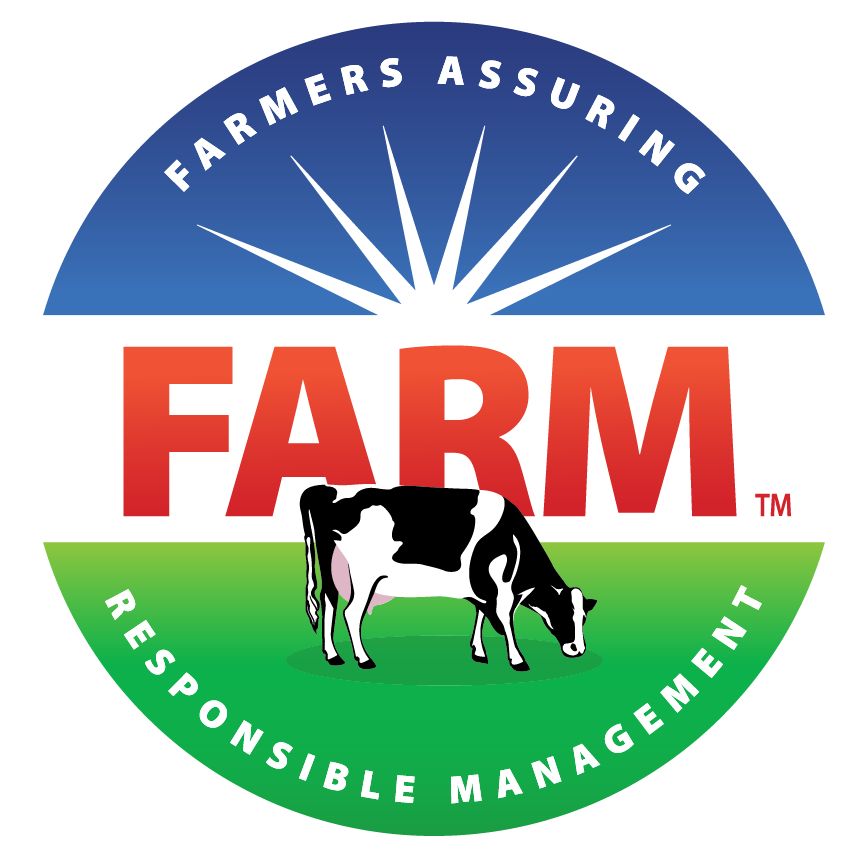First, some background. How long have you been involved in the agriculture – and specifically dairy—industry?
I grew up on a dairy farm in Somerset County, Penn. We milked 77 cows in a tie-stall barn, but expanded to a free-stall/parallel parlor while I was in college. While attending Penn State, I worked at the dairy barns and had internships with Farm Credit and Penn State Extension. I met my husband Mark while at PSU and shortly after graduation, we married and returned to his home dairy in Fulton County, Penn. I continued to work for my parents and brother for a short time until Mark’s family expanded their herd and I joined them as their calf and heifer raiser, which I continue to do.
In the simplest terms, explain to your average consumer what you do as a FARM Evaluator.
As a FARM Evaluator, I visit our cooperative’s farms to do an assessment of their cattle and animal care practices. I not only look at what written standards they might have in place, but I also observe the cattle in their current environment and facilities to see what BMPs (best management practices) are working, as well as what needs improvement. I ask specific questions, but more importantly I spend time looking at what is actually happening on the various dairies. Each dairy has its own unique environment, geographic location and facility set-up that influences how animals are handled and cared for.
Walk me through a typical day as a FARM Evaluator. How many hours does it take?
A typical day can vary. I work part-time so I’ll spend a day every other week or so just making phone calls to set up appointments to do the evaluations. On evaluation day, I have my app on my iPad set up with the farm’s general information already entered. When I get to the farm, I do a little intro and explanation of the program if they haven’t been through it before. We go through the questionnaire and then do a walk-through of the facilities while I’m scoring the animals. I will end by going over both the positives and the things that require improvement or adjustments. I send a participation form and follow-up letter to remind them of anything we discussed, especially those things needing improvement. On occasion I will need to set up an action plan with the dairy farmer with a follow-up date when I return to confirm that improvements are being made.
Hours depends on herd size and time of year. Dairy farmers are more likely to sit and talk, ask questions, and get into detail when it’s not spring or fall, when there is a big push to get crops in or harvested. Smaller dairies (less than 100 in the herd) can be completed in 1-2 hours, while a larger dairy of maybe 5,000 could take 4-5 hours depending on whether all animals were housed at one location.
What are some of the overall benefits of this job?
I enjoy getting to meet so many different dairymen and women, as well as seeing the diversity within the dairy community. It’s truly remarkable to see something done so many different ways, and yet it’s still the same in many ways, too. Every person involved in dairy has a little bit of a different take on things. It’s been very educational for me.
The challenges?
Probably the biggest challenge I face are the logistics of creating a schedule that works when a dairy farmer is at the mercy of weather. You have to be flexible if it has been raining for a week and suddenly it dries up. No one wants to see me, even if I was on the schedule, and I completely understand that.
Tell me about a particularly rewarding experience while on the job.
One of the most rewarding experiences is when I make a repeat visit to a farm and see continued improvements being made. It tells me we are working toward the same goal to do the best job we can with our animal care.
What is one thing you often see during your evaluations that you think could use improving?
There’s one thing we can all do better – communicate. That could be verbal, non-verbal or written. Most people automatically think about this for larger dairies with more employees. They need to be able to share ideas and make changes to procedures in a way that includes everyone involved in a particular area of the dairy. However, even on small dairies with just family doing the chores, there can be miscommunication or inaccurate assumptions. Some dairies tackle this by having a weekly staff meeting or breakfast together to discuss the current situation and needs on their dairy.
As someone who works behind on the scenes, on the farm, what is one thing you would like to tell consumers who are concerned about animal care?
Most dairymen and women put their hearts and souls into what they do, and they work very hard to be good stewards of what’s been entrusted to them. And many farmers put the needs of their cows above their own. I’ve known some farmers who will call a veterinarian for a sick animal before they go to a doctor themselves. Are there farms that still need improvement? Yes and that’s why we work every day to get those farms on board with making the improvements needed to ensure proper animal care practices.
